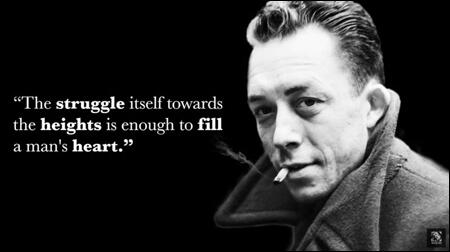Albert Camus
Albert Camus, the son of a farm labourer, was born in Mondovi, Algeria, on 7th November, 1913. On the outbreak of the First World War his father joined the French Army. Soon afterwards he was killed at the Marne.
Camus won a scholarship to Algiers High School. A good student, he was also a talented sportsman until he developed tuberculosis in 1930.
Camus studied philosophy at Algiers and after graduation worked as a schoolmaster, playwright and journalist. His first collection of essays, The Wrong Side of the Right Side, was published in 1937. This was followed by another collection about Algeria called Nuptials (1938).
Camus moved to Paris during the Second World War and wrote for Paris-Sour (March to December, 1940). By now Camus held socialist views and after Henri-Philippe Petain signed the armistice with Germany he joined the French Resistance. Later Camus became co-editor with Jean Paul Sartre of the clandestine newspaper, Combat.
He gained international fame with his existentialist novel The Stranger (1942). This followed by The Myth of Sisyphus (1942), a philosophical look at suicide.

After the war his literary reputation grew with The Plague (1948), The Rebel (1954) and The Fall (1957). Camus was awarded the Nobel Prize for Literature in 1957. He declared that he did not deserve the award and claimed it should have gone to André Malraux instead.
Albert Camus was killed in a car accident at Petit-Villeblev in 1960. An unfinished autobiographical novel, The First Man, was published after his death.

